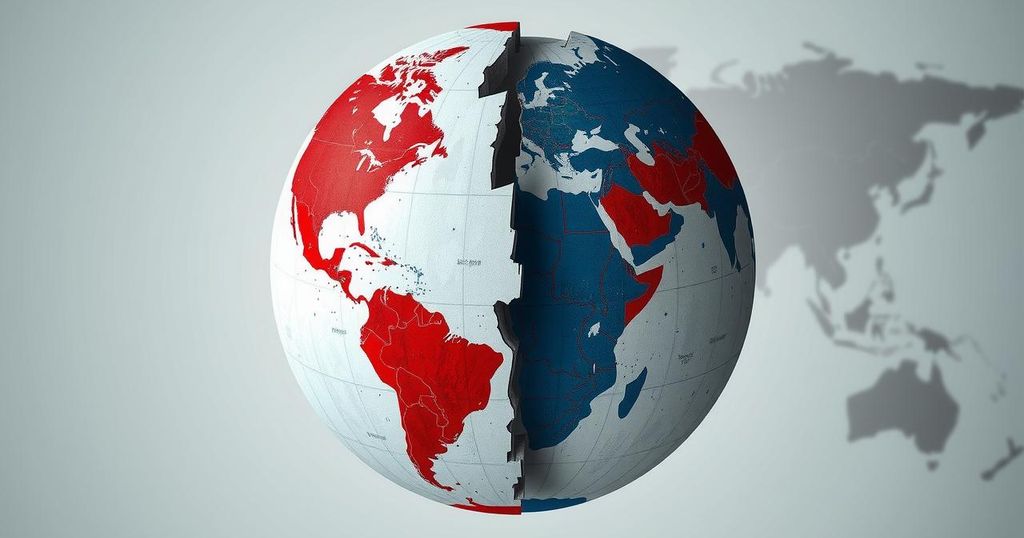Argentina has decided to withdraw from the World Health Organization, echoing the actions of former US President Trump in prioritizing national sovereignty over international health guidelines. President Javier Milei’s administration cites “profound differences” with WHO, particularly regarding its handling of the COVID-19 pandemic, and this move may further impact global health cooperation despite Argentina’s limited financial contribution to the organization.
Argentina has announced its withdrawal from the World Health Organization (WHO), citing “profound differences” with the UN agency, according to a presidential spokesperson. President Javier Milei’s decision closely resembles that of his ally, former US President Donald Trump, who initiated the US exit from the WHO on his first day in office. This move is expected to fracture global health cooperation further, even though Argentina’s financial contribution to WHO was minor, amounting to approximately USD 8 million against an estimated budget of USD 6.9 billion for 2024-2025.
Milei’s administration justifies this exit by highlighting issues regarding WHO’s health management during the COVID-19 pandemic. Spokesperson Manuel Adorni criticized WHO guidelines, suggesting they led to the largest shutdown in history and emphasized Argentina’s commitment to sovereignty over health matters. He stated that the country does not want international interference in its health policies.
The WHO has no power to enforce specific health initiatives among nations, and its guidelines are frequently disregarded. Following Argentina’s announcement, WHO indicated that it is assessing the situation. Although the spokesperson did not specify when the withdrawal would take effect, he mentioned concerns about WHO’s perceived lack of independence due to political influences from other countries.
The WHO is the leading body mandated to coordinate responses to global health crises, including outbreaks of diseases. Milei was a vocal critic of the lockdown policies established by former President Alberto Fernandez, arguing that they were detrimental to the economy and functioned as tools for repression. In a recent statement, he declared, “Long live freedom,” while criticizing the UN agency.
Adorni pointed out that Argentina does not rely on WHO for health funding, and this decision is expected to enhance policy flexibility within the country. Last year, the Milei administration declined to sign a pandemic management agreement with WHO, asserting that such adherence could compromise national sovereignty. The announcement precedes an upcoming trip to the US by Milei, which may align with the Conservative Political Action Conference (CPAC), although attendance and meetings with Trump have not been confirmed.
The recent decision by Argentina’s President Javier Milei to exit the WHO reflects a growing trend among certain nations to prioritize national sovereignty over international health guidelines. This follows a similar action taken by former US President Donald Trump, who critiqued WHO’s handling of the pandemic. As countries like Argentina withdraw, the ability of WHO to coordinate global health responses is increasingly challenged, potentially affecting public health management worldwide.
Milei’s decision to leave the WHO underscores a significant shift towards nationalism in health policy, reflecting dissatisfaction with international guidelines during the pandemic. As Argentina joins the list of countries distancing themselves from WHO, implications for global health cooperation grow, even if the direct financial impact of its departure is limited. The geopolitical landscape surrounding health management continues to evolve, raising concerns about international collaboration on health crises.
Original Source: www.indiatoday.in






